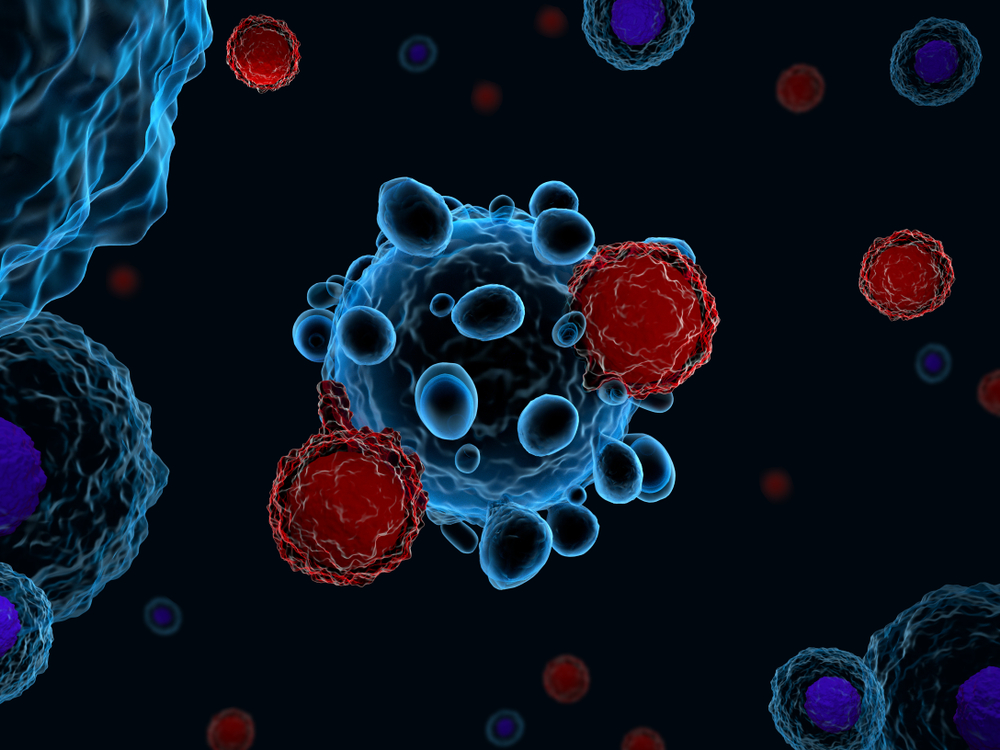UT Southwestern Researcher Tells His CAR-T Therapy Story Ahead of Myeloma Trial
Written by |

As UT Southwestern and Celgene Corporation join efforts to launch a new clinical trial to evaluate a chimeric antigen receptor T-cell therapy, also known as CAR-T therapy, for multiple myeloma, Dr. Woodring Wright, a professor of cell biology and cancer researcher, tells the story of his own journey with CAR-T therapy.
Wright, a UT Southwestern cancer researcher, was diagnosed with myeloma after a sneeze caused him to break one of his vertebrae, according to a recent profile by the university. One of the disease’s effects is to weaken bones, so when a sneeze caused that much damage, Wright knew something was off.
After decades of studying and learning about the complexities of cancer, Wright had become the subject. He started traditional chemotherapy treatment but soon became resistant. He switched to a second, and then a third, type of chemotherapy but continued to develop resistance to all of them.
“My myeloma cells went through the Darwinian selection of 11 chemotherapies, becoming resistant to them all. Basically, I was at the end of my rope,” Wright said in the university profile. “Fortunately, I had a professional colleague who was also in the telomere field who told me there was a clinical trial that was about to begin if I could hold on.”
Wright learned about that clinical trial at the University of Pennsylvania to test the “living drug” called CAR-T therapy, a personalized therapeutic approach that involves collecting T-cells, a type of immune cell, from a patient’s own blood, then re-engineering them in a lab so that they recognize cancer cells as an “enemy,” and reintroducing the engineered cells back into the patient’s body. Each dose of CAR-T therapy is unique and specific to a patient.
“I was all in. There were risks but I had basically run out of options. I know enough immunology to understand what they were trying to do and I thought it had a good chance of success,” he said of the trial.
The first round of treatment went well. But a second dose of the CAR-T therapy revealed risks when Wright’s body had a severe reaction. Doctors determined that the reaction was due to Wright’s natural immune system overwhelmingly responding to the therapy. His body had so many cancer cells that when under attack, it became overwhelmed by the immune response, much like when people have a strong fever.
Wright was hospitalized for two weeks to receive supportive therapy due to the strong reaction. Meanwhile, his cancer was losing the fight. By the time the crisis ended, Wright’s light-chain numbers, which are indicators of cancer, had dropped from 6,725 to just five, according to the university. He remains cancer-free today, two years after treatment.
For Larry Anderson, who recently began enrolling patients for a CAR-T multiple myeloma trial (NCT03361748) with Celgene at UT Southwestern, “Dr. Wright’s story is an example of why it’s so thrilling to be part of this pioneering effort.”
Anderson is working with Celgene in the upcoming clinical trial in myeloma. Celgene is producing the CAR-T therapy, called bb2121, which targets multiple myeloma cells producing the BCMA factor. Enrollment in the trial is currently open.
UT Southwestern is one of nine sites in the United States where patients can enroll in the trial, the university said. Multiple myeloma patients interested in participating can contact Julie Zuckerman at (214) 645-HOPE (214-645-4673).



